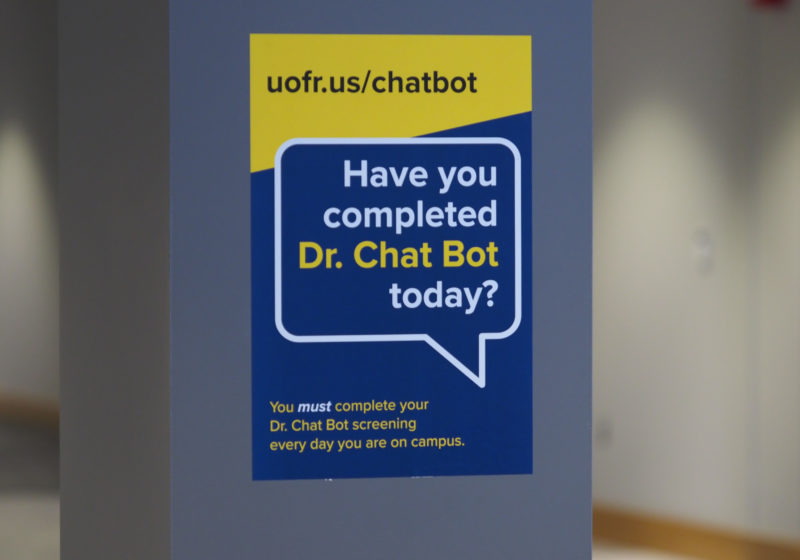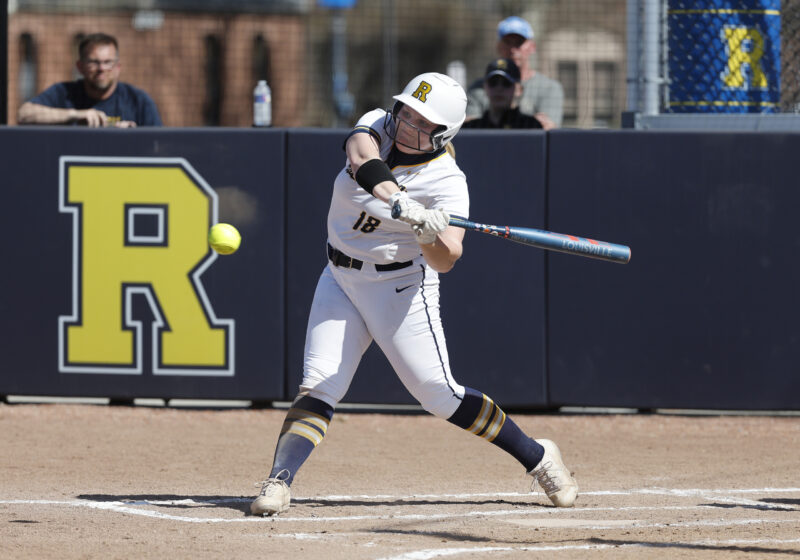Last week, the Campus Times published an op-ed arguing that the Dr. Chatbot Complete and Compete Challenge isn’t a wise idea. I write this piece to offer an alternate perspective. The article’s chief criticism, as I read it, is that the challenge rewards irresponsibility by unnecessarily increasing incentives for students to do what they should already be doing — as opposed to instituting negative repercussions for noncompliance — which sets a dangerous precedent for the University.
I agree with at least two of the article’s major points. Firstly, being on a college campus is a privilege at any time, but especially this year, and that privilege should not be taken lightly. Secondly, as someone who took the few seconds needed each day to fill out Dr. Chatbot last semester, it can be difficult for me to understand why we’ve had such low compliance. To some degree, I can relate to the frustration with appearing to reward people who haven’t been filling it out when many have been without added incentive for months.
I’d put forth, however, that that isn’t what the University is doing. There are two advantages to the challenge, and while they may or may not have been what the University intended when they instituted it, they form a compelling case.
For one thing, the challenge creates levity in an otherwise frustrating and tiring time. I agree with the writer that we can’t afford to forget we’re in a pandemic, but we also can’t deny the extra energy that takes from us. When I was little, I hated the dentist, but the sticker at the end made it all a bit more bearable. Between remembering to wear a mask, trying to find safe meeting places, not visiting friends’ halls, keeping visitors off campus, losing trips home, searching for brightly-taped chairs, seeing signs with pandemic slogans around every corner, taking classes online, and, of course, filling out Dr. Chatbot, the energy COVID-19 takes is significant. If we can take a small part of that long and incomplete list and make it positive in some way, why wouldn’t we?
Yes, it’s hard to understand the difficulty in taking three seconds to fill out a survey, but I’ll admit that I’ve had days where that seemed like a big ask. If we can present it as a fun opportunity rather than one more duty in an already exhausting time, then by all means we should.
Perhaps more importantly, while it may seem like rewarding negative behavior, I’d argue that the challenge utilizes a psychologically sound teaching method. Operant conditioning is “the process of learning through reinforcement and punishment.” This theory presents several ways (of varying effectiveness) to change behavior. Under this theory, the challenge is a form of positive reinforcement — rewards are being added for the positive behavior of completing Dr. Chatbot. Reinforcement schedules also matter in forming behavior (think of giving a dog a treat each time it does a trick, as opposed to only sometimes). Intermittent, unpredictable reinforcement, as the challenge uses, is the most effective schedule for forming a new behavior pattern. Rather than rewarding negative behavior, therefore, the challenge presents a learning strategy that would have been useful all along, but is “better late than never” this semester.
Many students don’t see the point in Dr. Chatbot — they feel they already know what to do if they’re symptomatic or that it’s simply a case of the University covering liability. Yet it’s clear that the University, whatever their reason, feels this is an important habit. Purely as an economics problem, if the University feels Dr. Chabot completion is important enough to spend the resources on and students are motivated enough by rewards to fill it out, then everyone reaps a net benefit. I don’t see a downside.
I don’t think this means the University will need to offer meal plans to get students to act responsibly in future situations. But if we can apply sound principles and available resources to reap benefits for everyone now and in the future, that’s certainly a course worth pursuing.





